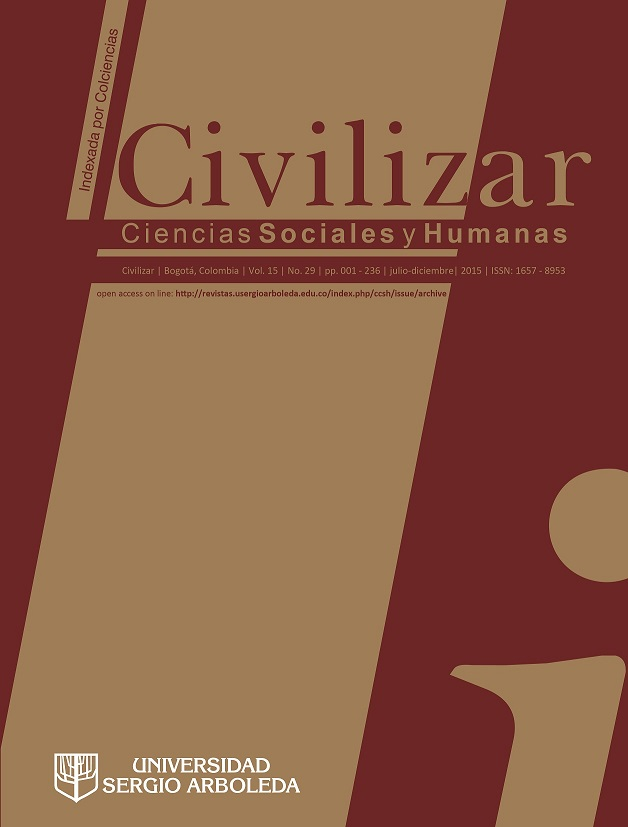Resumen
Este artículo estudia a qué actividades se dedicaron los jóvenes colombianos entre los 15 años y 24 años que ni estudian ni trabajan (ninis), así como también analiza el uso de su tiempo. En específico, se identificaron las diferencias de género en las actividades principales que realizaron unos y otras, poniendo énfasis al tiempo consagrado a su ejecución. Para ello, se utilizó la Encuesta Nacional de Uso del Tiempo 2012-2013. Se evidenció que existe una marcada diferenciación de género en los roles del hogar por sexo desde tempranas edades, ya que las jóvenes se concentraron más a las labores de trabajo no remunerado del hogar y la familia, generando una polarización genérica que incrementa la desigualdad de oportunidades en su bienestar presente y futuro.
Referencias
Abdala, E. (2004). Formación y empleabilidad de jóvenes en América Latina. En M. Molpeceres (Ed.), Identidades y formación para el trabajo en los márgenes del sistema educativo: escenarios contradictorios en la garantía social (pp. 17-65). Montevideo: Centro Interamericano para el Desarrollo del Conocimiento en la Formación Profesional; OIT/Cinterfor.
Aguila, E., Mejía, N., Pérez, F., & Rivera, A. (2013). Pobreza y vulnerabilidad en México: El caso de los jóvenes que no estudian ni trabajan. Estudios económicos, 30(1), 3-49.
Aguirre, R., & Ferrari, F. (2013). Las encuestas sobre uso del tiempo y trabajo no remunerado en América Latina y el Caribe (Comisión Económica para América Latina y el Caribe –Cepal, Serie Asuntos de género No. 122). Recuperado de http://repositorio.cepal.org/bitstream/handle/11362/5851/S1420397_es.pdf
Aguirre, R., Garcia, C., & Carrasco, C.(2005). El tiempo, los tiempos, una vara de desigualdad (Cepal, Serie Mujer y Desarrollo No. 65) Santiago de Chile: Cepal.
Amarante, V., Filardo, V., Lasida, J., & Opertti, R. (2011). Jóvenes en tránsito. Oportunidades y obstáculos en las trayectorias hacia la vida adulta. Argentina: Rumbos.
Arceo-Gómez, E., & Campos-Vázquez, R. (2011). ¿Quiénes son los ninis en México? (El Colegio de México, Documento de trabajo, No. VIII-2011). Recuperado de http://cee.colmex.mx/documentos/documentos-de-trabajo/2011/dt20118.pdf
Banco Mundial. (2013). Youth employment programs. An Evaluation of World Bank and IFC Support. Washington D.C.: Autor.
Batthyány, K., Genta, N., & Tomassini, C. (2012). Mujeres jóvenes que cuidan pero no estudian ni trabajan en el mercado (Instituto Nacional de las Mujeres -Inmujeres, Argumentos que transforman No. 2). Recuperado de http://www.inmujeres.gub.uy/innovaportal/file/20568/1/argumentos_n2.pdf
Una vez publicado, los derechos de impresión y reproducción son del Universidad Sergio Arboleda. Es potestativo del editor permitir la reproducción del artículo.

